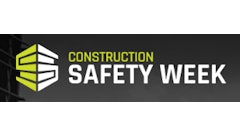In 2011, your company will experience heightened scrutiny from governmental agencies and litigants regarding your compliance with labor and employment laws. To prepare your company for these issues, get reliable answers to these questions, or if you feel you are not properly protected, contact expert counsel for solutions.
FLSA Collective Actions. This area of the law has seen the most growth over the past few years in terms of number of claims and amounts paid out by employers. You should conduct periodic audits to confirm you are in compliance with both state and federal law. Analyze "exempt" positions to make sure you meet the regulatory tests. Verify that no one is working "off the clock" such as logging onto computers or waiting to go through security, or time spent training or working during unpaid lunch time. Avoid automatic deductions for meal or rest breaks and instead require employees to clock in and out.
EEOC Litigation. Make certain that you have posted the most recent mandatory EEO posters in appropriate locations. Ensure that your managers and supervisors know how to respond to requests for reasonable accommodation by persons with actual or perceived disabilities. Carefully define the essential functions of each position to more easily determine if employees are "qualified individuals" for ADA purposes. Give appropriate training to whoever prepares your EEO-1 reports and EEOC position statements.
Independent Contractors. State and federal tax authorities are cracking down on misclassification of workers. Analyze the situation of each "independent contractor" you engage to make certain this person is NOT an employee under applicable state and federal laws.
Jury Waiver and Arbitration Agreements. Take advantage of properly drafted jury trial waivers and/or arbitration agreements. These can save you a fortune if you get sued by an employee or former worker.
Social Media Issues. Implement a social media policy that correctly regulates what employees can say about you, your company, your employees, your customers, your competitors and your industry. Make certain your employees know the limitations on posting work-related information on Facebook, Twitter, MySpace, etc.
Restrictive Covenants and Trade Secrets. To protect your trade secrets, customer lists, pricing information and other sensitive or confidential data, use properly drafted restrictive covenants and trade secret provisions. You should add these to your employee handbook and implement them individually by written agreements.
Labor Unions. Train your managers and supervisors to spot the signs of union organizing and respond appropriately and lawfully. Update your union organizing response plan. If you are a covered federal contractor, make sure you are complying with the "labor organizing" posting requirements of Executive Order 13496.
OFCCP Audits. If you are a covered federal contractor or subcontractor, check to make sure you completed your Affirmative Action Plan for the current plan year. Analyze your applicant flow, hiring and pay data by job group and job title to identify and correct adverse impact or pay disparities.
Health Care & FMLA. While most of the requirements of the Obama Administration Health Care Reform Act are phased in over the next few years, some apply already. Be sure to check with your benefits providers to ensure that your plans - and how you administer them - are up to date. You should also discuss with your benefits providers how they will help you cope with the major changes in health care benefits coming in the near future.
Immigration Enforcement. Be certain to conduct a periodic audit of your I-9 forms (see December 2010 Concrete Contractor for guidelines to perform your own self-audit), and make sure you correct whatever errors on the forms can be fixed. If you spot a pattern of errors on forms, arrange for training for the person who completes your I-9 forms. Even seemingly innocent mistakes can result in severe fines, and compliance enforcement almost always starts with a review of your I-9 forms. You should also make certain you obtain certifications of I-9 compliance from your subcontractors and vendors so you can establish that you believed they were in compliance with the law.
This checklist is not intended to be a complete summary of everything you have to do to be in compliance with the myriad laws and regulations affecting employment today. But, if you do these things well, you will certainly be off to a good start in the new year.
David Whitlock is a partner at Elarbee Thompson, a labor and employment law firm in Atlanta, Ga. He has nearly 25 years experience in business immigration, compliance, employment counseling and training and is a frequent lecturer and presenter on best practices in employment-related topics. He can be reached at [email protected].


















